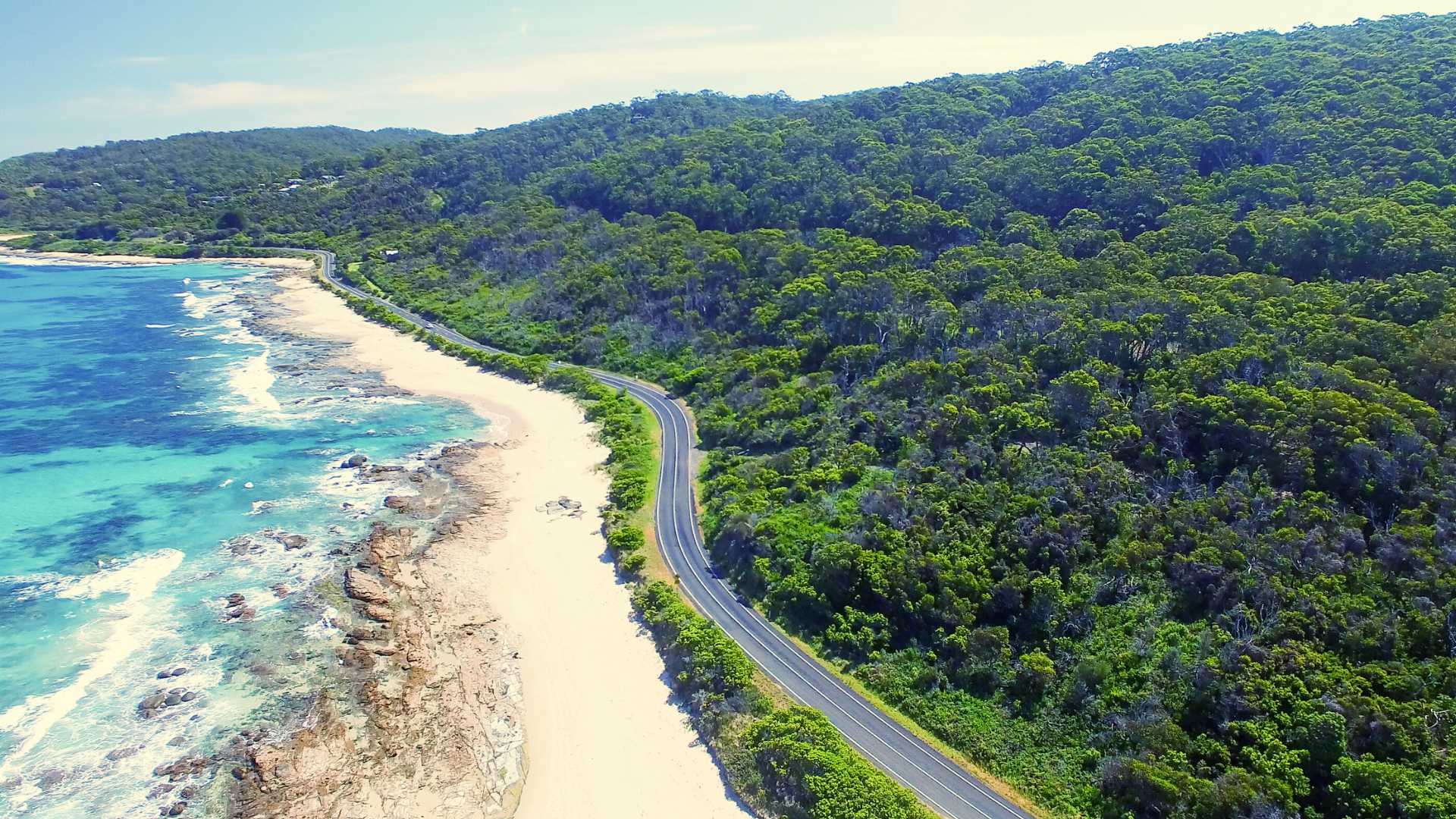
Types of Australian Migration Visas for South Africans
Australia has long been a dream destination for South Africans seeking new opportunities, a better quality of life, and the chance to build a future in one of the most sought-after countries in the world. Known for its vibrant cities, stunning natural landscapes, and thriving economy, Australia offers an inviting lifestyle that appeals to individuals and families alike. But how do you make that dream a reality? Understanding the types of Australian migration visas available is the first step towards making immigration a possibility.
At Hitchcock & Associates, we specialise in helping South Africans navigate the immigration process with ease. Whether you’re starting from scratch or regaining your residency after a visa has expired, our expert team is here to guide you through every stage of your application. Let’s explore your potential pathways to Australia below.
Types of Australian Migration Visas Available for South Africans
TYPES OF AUSTRALIAN MIGRATION VISAS AVAILABLE FOR SOUTH AFRICANS
Australia offers a variety of migration visas tailored to meet the needs of South Africans looking to relocate. These visas cater to different goals, from pursuing career opportunities to reuniting with family or contributing to Australia’s economy through innovation or entrepreneurship. Below are some of the most common visa categories available:
1. Working and Skilled Migration Visas
General Skilled Migration (GSM) Program
Visas under the General Skilled Migration (GSM) program, such as the Subclass 189 (Skilled Independent Visa), Subclass 190 (Skilled Nominated Visa), and Subclass 491 (Skilled Work Regional Visa), are ideal for skilled professionals whose occupations are listed on Australia’s Skilled Occupation List. These visas operate on a points-based system, where applicants are assessed on factors like age (ideal range: 25-32), qualifications, English proficiency (measured by IELTS or Pearson PTE), and work experience.
Invitations for Subclass 189 visas are issued by the federal government, while Subclass 190 and 491 invitations come from state or territory governments. Although there are typically more places available for Subclass 190 and 491 visas, and the annual quotas are not always fully utilised.
Employer-Sponsored Visas
Subclass 186 (Employer Nomination Scheme Visa)
The Subclass 186 visa provides a direct route to permanent residency and is designed for skilled workers nominated by an Australian employer. This visa remains a popular option for individuals seeking stability and long-term opportunities in Australia. Employers must nominate applicants for occupations that align with Australia’s skill shortage priorities, and applicants aged 25-44 are particularly sought after due to their adaptability and workforce potential.
Subclass 482 (Skills in Demand (SID) Visa)
Replacing the Temporary Skills Shortage (TSS) Visa, the SID Visa streamlines the process for high-skill migrants filling critical roles in Australia’s economy. Key changes to this visa include:
- A reduced work experience requirement, from two years to one year.
- Elimination of short-term and medium-term occupation lists, replaced by the new Core Skills Occupation List (CSOL) for the Core Skills Stream.
- Three visa streams:
○ Specialist Skills Stream: For those earning $135,000+ per annum in any eligible occupation (excluding trade workers, machinery operators, drivers, and labourers based on ANZSCO groups 3, 7, and 8).
○ Core Skills Stream: For applicants with occupations on the CSOL and earning at least $73,150 per annum.
○ Labour Agreement Stream: This stream remains unchanged and is for workers nominated under labour agreements.
Both the Subclass 186 and 482 visas aim to address skill shortages in Australia, enabling employers to attract top talent from abroad.
National Innovation Visa (NIV): A New Pathway for Entrepreneurs, Investors, and Exceptional Talent
The subclass 858 National Innovation Visa (NIV) is Australia’s latest initiative to attract global leaders who can drive economic growth through innovation, entrepreneurship, and expertise in critical sectors. Replacing the Global Talent Independent Visa (GTI), the NIV provides a streamlined pathway to permanent residency for individuals with exceptional skills and achievements.
This permanent residency visa (Subclass 858) is tailored for individuals who are leaders in their fields, whether they’re driving advancements in digital technology, clean energy, agritech, finance, health, or creative industries. The NIV emphasises the quality of applicants’ ideas, achievements, and potential contributions, moving away from monetary thresholds seen in previous business and investment programs.
The application process requires all candidates to submit an Expression of Interest (EOI) before being invited to apply. The NIV prioritises applicants across four key categories:
- Global Experts and Nobel Laureates (Priority 1).
- Applicants Nominated by Australian Government Agencies (Priority 2).
- Professionals in Critical Sectors like AI, cybersecurity, renewable energy, and agritech (Priority 3 and 4).
For South African entrepreneurs and investors, this is a significant opportunity to join Australia’s thriving economy, especially for those working in transformative industries like hydrogen production, battery technology, robotics, and biodiversity conservation.
2. Family and Partner Visas
Family and partner visas enable South Africans to either move with their loved ones sponsoring them or join them if the sponsor already resides in Australia. Popular options include the Subclass 143/864 (Contributory Parent Visa / Contributory Aged Parent Visa) and the Subclass 309/100 or 820/801 (Partner Visa). Contributory Parent visas, while more expensive—costing approximately $50,000 in visa application fees for a single applicant—provide pathways to permanent residency. Partner visas allow spouses and de facto partners to reunite with their Australian citizen or permanent resident partner.
3. Resident Return Visa (RRV)
For former Australian permanent residents or citizens, the Resident Return Visa (Subclass 155) offers the chance to regain permanent residency. Unlike other visas, this does not require health checks, making it a straightforward pathway for those seeking to restore their permanent residency status in Australia.
Australia’s migration system is designed to accommodate a range of needs, offering opportunities for skilled professionals, families, and investors alike. Hitchcock & Associates specialises in helping South Africans navigate the complexities of these visa options, ensuring they choose the right pathway for their goals.
AUSTRALIA WORK VISAS
More Freedom to Choose
Want the freedom to live and work anywhere in Australia ? The Subclass 189 (Skilled Independent Visa) might be your perfect fit. As a points-based visa, it assesses your age, education, work experience, and English proficiency through tests like IELTS or Pearson PTE. This visa doesn’t require a job offer, making it ideal for South Africans eager to explore career opportunities independently.
Fast-Track Your Move
Have a job offer? Employer-sponsored visas, such as the Subclass 186 (Employer Nomination Scheme Visa), allow South Africans to fill critical skills gaps in Australia’s industries. These visas can lead to permanent residency, offering stability for you and your family.
Example: If you’re a mechanical engineer or a healthcare professional, securing employer sponsorship could help you settle more quickly and easily.
Discover Australia’s Hidden Gems
Regional visas like the Subclass 491 (Skilled Work Regional Visa) offer a unique opportunity to settle in Australia’s less populated but thriving areas. These visas encourage skilled professionals to contribute to regional communities, providing benefits like lower living costs, lifestyle perks, and additional points for permanent residency eligibility.
AUSTRALIA FAMILY SPONSORSHIP VISAS
Join your Partner
If your spouse or de facto partner is an Australian citizen or permanent resident, the Subclass 820/801 (Partner Visa) allows you to join them in Australia. This visa lets you live, work, and study in Australia while waiting for your permanent residency grant. For those applying from outside Australia, the Subclass 309/100 (Partner – Provisional & Migrant – Visa) offers a similar pathway.
Example: Whether you’re newly married or in a long-term relationship, this visa ensures you can build a life together in Australia.
Beyond the Immediate Circle
For those with close family ties, options like the Subclass 115 or 835 (Remaining Relative Visas) allow South Africans with no close family members outside of Australia to join their relatives. Additionally, the Subclass 114 or 838 (Aged Dependent Relative Visas) supports elderly family members who rely on an Australian sponsor.
A Future in Australia
The Subclass 101 and 802 (Child Visas) enables Australian citizens or permanent residents to sponsor their dependent children to either move with them or join them in Australia if they are already there. This visa provides a direct pathway to permanent residency, ensuring families stay together.
AUSTRALIA PARENT VISAS
Pricier but More Time-Intensive
Parent visas like the Subclass 143/864 (Contributory Parent Visa) are ideal for parents of Australian citizens or permanent residents. While these visas come with a higher cost – at approximately $50,000 in visa application fees, they can be processed more quickly compared to other parent visa options.
Bringing Generations Together
For those looking for a more cost-effective option, the Subclass 103 (Parent Visa) provides permanent residency with significantly lower fees. However, processing times can extend to many years, making it a better fit for families planning well in advance.
Note: While non-contributory visas are affordable, they require patience due to extensive waiting periods.
A Short-Term Solution
The Subclass 870 (Sponsored Temporary Parent Visa) allows parents to stay in Australia for up to five years without needing permanent residency. This visa is renewable for up to an additional 5 years, enabling parents to spend extended time with their families without the higher costs of permanent residency visas.

I ALREADY HAVE/HAD AN AUSTRALIAN PERMANENT RESIDENCY VISA BUT I NEVER LEFT SA – DOES IT STILL COUNT?
For many South Africans who’ve been granted an Australian permanent residency visa but never made the move, you may be wondering if your visa is still valid, especially if it’s about to expire or if it has already expired. The answer depends on several factors, but there’s good news—there are pathways to retain your Australian residency if it’s about to expire or regain it if it has already expired.
The Resident Return Visa (Subclass 155) is designed for situations like these, helping South Africans retain or regain their permanent residency status. Unlike many other visa types, the RRV doesn’t require health and character checks, making it an efficient option for those looking to reinstate their residency rights.
If your original permanent residency visa has expired entirely, but you’ve maintained ties to Australia (e.g. family, business, work connections), the Resident Return Visa may help you regain your residency status.
If your original permanent residency visa has expired and you don’t have ties to Australia, you will need to explore other pathways, such as applying through skilled migration or family sponsorship, which we, at Hitchcock & Associates can explore for you.
It’s also worth considering the importance of timing. While an expired visa can present challenges, , the earlier you act, the better your chances of finding a solution. Keeping documentation of your original visa, any ties to Australia, and your intent to migrate will strengthen your case. And if you’re not sure where to begin, expert advice can make all the difference.
So, does your permanent residency visa still count if you never left South Africa? In many cases, the answer is “not automatically,” but there are always pathways to explore. Hitchcock & Associates is here to guide you, ensuring you understand your options as well as what’s possible and not possible.
CAN I GET A MIGRATION VISA IF MY PARENTS WERE PERMANENT RESIDENTS OF AUSTRALIA?
If your parents were permanent residents of Australia, their status could open doors to migration opportunities for you.
The first factor to consider is whether your parents still hold permanent residency or have become Australian citizens. If they do, family sponsorship could be an option for you. For example, if you’re a dependent child, you might be eligible for a Child Visa (Subclass 101 or 802), allowing you to join your parents in Australia and gain permanent residency. Even as an adult child, you may qualify for a visa like the Remaining Relative Visa (Subclass 115 or 838) if you have no other close family outside Australia.
But what if your parents held permanent residency in the past, and you never activated your own connection to Australia? In this case, a Resident Return Visa (Subclass 155) might provide a solution, if you were included in your parents original permanent residency visas. This visa is designed for individuals who previously had permanent residency but allowed it to lapse.
If you’re unsure of where to start, Hitchcock & Associates can help. Our team specialises in guiding South Africans through the complexities of family-based migration, ensuring that you understand your options and have the best possible chance of success. Whether it’s pursuing family sponsorship, exploring a Resident Return Visa, or identifying another pathway, we’re here to make the process of discovery as simple as possible.
I ALREADY HAVE FAMILY OR A SPOUSE/PARTNER IN AUSTRALIA – DO I QUALIFY FOR A VISA?
Having family or a spouse/partner in Australia can be a significant advantage when applying for an Australian migration visa.
For those with a spouse or de facto partner who is an Australian citizen, permanent resident, or eligible New Zealand citizen, the Partner Visa offers two pathways: Subclass 820/801 for onshore applications and Subclass 309/100 for offshore applications. Onshore visas allow you to live, work, and study in Australia while waiting for permanent residency approval, whereas offshore visas require you to remain outside Australia until granted. The process involves proving the authenticity and commitment of your relationship, which can include shared financial responsibilities, cohabitation evidence, and personal declarations.
If your connection to Australia is through close family members, there are also options available. For example, the Contributory Parent Visas (Subclass 143/864) allows parents to join their children in Australia as permanent residents, though it comes with a higher cost. Alternatively, siblings, adult children, or other close relatives may qualify for visas like the Remaining Relative Visas (Subclass 115/838), especially if you have no other close family outside Australia.
CONCLUSION
Family and partner connections are more than just an emotional anchor—they can be a key factor in your migration journey. However, your eligibility varies depending on the specific visa and your circumstances.
At Hitchcock & Associates, we specialise in helping South Africans navigate the extensive array of available visas for immigration as well as their processes, from gathering the right documentation to meeting sponsorship requirements. With our guidance, you’ll be well-informed about your migration options and what’s required to submit and facilitate a successful visa application.

